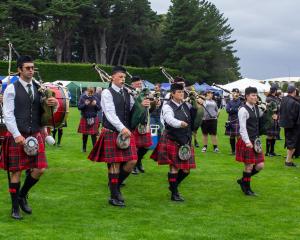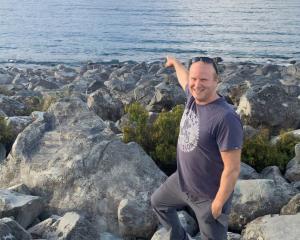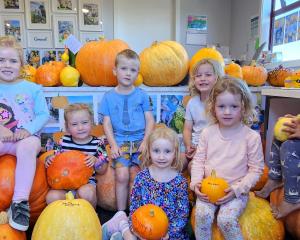
Big-hearted volunteers, raising funds in South Canterbury next week, hope to raise awareness.
Money raised is earmarked for the Big Heart Appeal, the Heart Foundation’s biggest fundraiser of the year.
"One Kiwi dies from heart disease every 90 minutes, heart health advocate Marthy Cloake said.
"It’s still the No1 killer both in New Zealand and globally.
"Our work has never been more urgent," Mrs Cloake said.
"Funds raised help us to make a big difference, whether it is supporting research that results in improved treatments or investing in overseas training for our young cardiologists, so we can offer world-class interventions in New Zealand.
"Outcomes for those affected by heart attacks and other heart conditions have greatly improved, thanks to Heart Foundation-funded work, but there is still much to be done."
She said significant gaps remained in research, diagnosis and care of women with heart disease.
"It is an area we are investing in and we hope this research will make a major impact on women’s cardiovascular health in New Zealand and globally."
Emergency medicine specialist at Christchurch Hospital Dr Laura Joyce was awarded a small project grant by the Heart Foundation this year to lead an innovative pilot study aimed at improving the follow-up care of patients with atrial fibrillation who presented with symptoms at emergency departments (EDs).
Dr Joyce said this study would assess the feasibility of using remote follow-up to screen patients in their own homes the day after their ED visit.
"It could be a truly revolutionary approach to help our EDs cope with the high volume of visits they are currently experiencing."
The study would use a smartphone app to measure heart rhythm, coupled with a nurse-led telephone call to guide patients through the process.
"A key aspect of this study will be gathering feedback from patients on the usability and acceptability of the remote follow-up process.
"Understanding the patient experience will be crucial in evaluating the success of this approach."
Heart Foundation medical director Dr Gerry Devlin said atrial fibrillation was becoming an increasingly common heart rhythm disorder which often resulted in hospital presentation.
"With the help of new technologies informed by best-practice guidelines, we can hopefully provide patient reassurance, get people back to their own homes and avoid unnecessary hospital appointments.
"Heart Foundation grants like this one have contributed massively to improving heart health over the years and we need to continue raising funds every year."
"We need your support now more than ever and by going out and donating in your community, we can fund more vital life-saving heart research."
The Heart Foundation is calling on South Canterbury to give generously on Friday, February 21 and Saturday 22, to raise funds for heart research.
— APL












